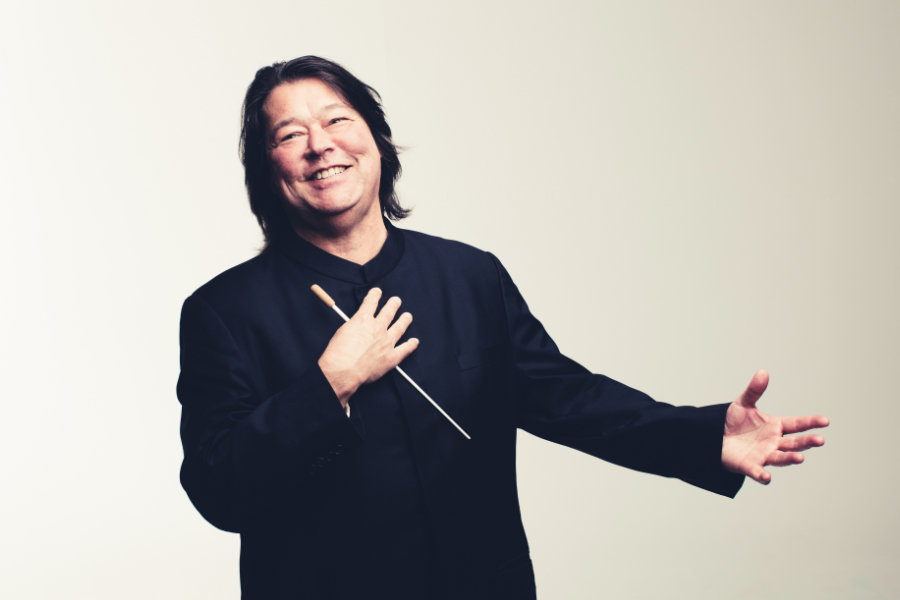The concert of the NFM Leopoldinum Orchestra conducted by Joseph Swensen features works by Jean Sibelius and Arnold Schönberg. They were among the most important composers active in the first half of the 20th century but went in completely different directions in their works. We will listen to quartets by Sibelius and Schönberg, arranged for string orchestra by Joseph Swensen.
The String Quartet in D minor op. 56 “Voces intimae” by Jean Sibelius was written at the turn of 1908 and 1909. Although the Finnish artist in his youth wrote many short works intended for a quartet, this work is the only piece of this genre from his mature period. The subtitle can be translated as “intimate voices” or “inner voices”, which emphasises the introspective nature of this composition and the huge role of dialogues between individual instruments. The five-movement form is intriguing: the central point is the slow movement, Adagio di molto, surrounded by two scherzos and two other fast movements full of nervous energy. Premiered in 1910 in Helsinki, the critics were stunned by the piece. One of them wrote: “this is not a work for the general public, [...] it is eccentric and unusual”. The eccentricity and expressive style of Sibelius are today the features that strongly attract performers and audiences to his music.
The String Quartet No. 2 in F-sharp minor op.10 by Arnold Schönberg is basically the same age as Sibelius’ work, as it was written in 1908. The Austrian composer wrote it during a turbulent period of his life. Although he dedicated the piece to his wife, Mathilde, it was not an expression of marital happiness – at that time Mathilde was having an affair with the young painter Richard Gerstl. This case had a tragic ending. Mathilde decided to return to her husband, and the rejected lover committed suicide after destroying many of his works. In the second movement of the emotional quartet, a quote from the popular Viennese song O du lieber Augustin resounds. In the third and fourth movements, Schönberg decided to introduce a solo soprano. He chose two poems by Stefan Georg, a German symbolist poet and translator of the works of Dante, Shakespeare and Baudelaire into German. They are titled Litany and Delight.

